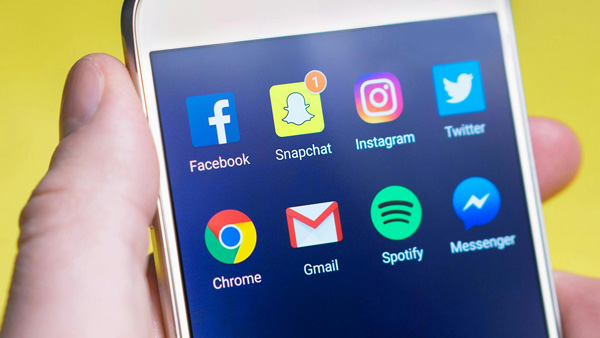The excessive use of social media affects teens negatively

[A person holding an Android smartphone. Photo Credit to Pexels]
A recent report from the World Health Organization (WHO) reveals a substantial increase in problematic social media use among teens.
The study, from September 2024, found that the percentage of teens experiencing issues related to excessive social media use has increased from 7% in 2018 to 11% in 2022.
According to the report, constant comparisons with others and digital distractions are negatively impacting teenagers' mental health, sleep patterns, and academic performance.
While teens regularly use social media to keep in touch with friends and family through platforms such as Instagram and TikTok, experts warn of mounting concerns behind the platforms’ seemingly benign facade. Research indicates that social media addiction hampers academic performance, with students experiencing declining grades due to constant notifications and digital distractions. These interruptions cause teens to spend more time on social media than studying, resulting in poor focus, deteriorating study habits, and academic underperformance. Furthermore, excessive nighttime social media use often results in fatigue, compromising students’ ability to concentrate in school. Mental health experts have also identified significant psychological impacts, as teens frequently compare themselves to carefully curated online personas, becoming obsessed with metrics such as likes and comments, potentially triggering anxiety and depression. Of particular concern is the increasing cases of attention disorders linked to short-form video consumption. Researchers note that children, being more susceptible to developmental influences, absorb these affects more rapidly than adults. This phenomenon can impair cognitive development, affecting memory formation and potentially causing long-term academic challenges extending into adulthood. The report also highlights the risks of harmful content exposure and cyberbullying. Although there was bullying before the internet, the rise of social media has increased its reach and impact. Cyberbullying proves damaging as it can occur around the clock, unlike traditional school-based bullying. Because anonymity is guaranteed online, bullies often act more aggressively, which can lead to serious harm and increased risk of suicide among those being bullied. Social media has become an integral part of modern life, but its negative impacts on academic performance, mental health, and social dynamics cannot be ignored. THE WHO Reports emphasize the importance of parental oversight and education about responsible social media use. As research continues to reveal these challenges, developing healthy digital habits has become crucial for protecting the well-being of young users.

- Jason Lee / Grade 10 Session 1
- Saint Andre Bessette Catholic Secondary School

![THE HERALD STUDENT REPORTERS [US]](/assets/images/logo_student_us.png)
![THE HERALD STUDENT REPORTERS [Canada]](/assets/images/logo_student_ca.png)
